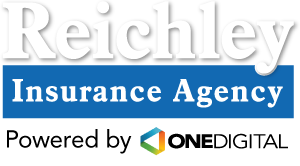Tom and Harry Discuss Risk Management at Work
Tom and Harry are in an office breakroom, coffee cups in hand. The hum of computers and distant phone conversations fill the background as they lean against the counter.)
Harry: [Sipping coffee] You ever notice how people think insurance is the answer to everything?
Tom: [Smirks] Says the guy who’s always asking me about insurance.
Harry: Yeah, yeah. But hear me out. The other day, the boss was talking about how we need better risk management in the company, and someone—won’t name names—said, “Why not just buy more insurance?”
Tom: [Shakes his head] Classic. Some folks think insurance is a magic shield, but it’s not always the best—or only—solution.
Harry: That’s what I’m saying! I mean, don’t get me wrong, insurance is important. But if you’re relying on it as your first line of defense instead of your last, you’ve got problems.
Tom: Exactly. Think about it like this—insurance is there to catch you when all else fails. But real risk management? That’s about preventing the fall in the first place.
Harry: Right! Like, instead of just buying more business interruption insurance, maybe we should focus on securing our supply chain better so we don’t have to use it.
Tom: Now you’re talking like a risk manager. Insurance is reactive—it kicks in after something bad happens. Risk management is proactive—it helps you avoid the bad stuff to begin with.
Harry: Makes sense. So, what’s a good example of managing risk instead of just insuring against it?
Tom: Alright, take a construction company. They could get more workers’ comp coverage, sure. But if they implement better safety training, enforce proper gear use, and conduct regular equipment inspections, they reduce the risk of accidents in the first place. That means fewer claims, lower premiums, and a safer workplace.
Harry: So, instead of relying on the payout, they’re making sure they don’t need it.
Tom: Exactly. Or take cyber insurance—good to have, but if a company isn’t keeping their systems updated or training employees on phishing scams, they’re practically inviting a cyberattack.
Harry: And when they get hacked, they just expect insurance to clean up the mess.
Tom: [Nods] Meanwhile, they could’ve avoided the whole thing with some good policies and training.
Harry: So, if insurance isn’t the answer to everything, when should a business actually rely on it?
Tom: When a loss would be too big to handle on their own. Insurance is best for those high-severity, low-frequency events—things like major lawsuits, natural disasters, or a catastrophic fire. Stuff that could bankrupt a business.
Harry: And for everything else?
Tom: Risk management. Identify potential problems, find ways to reduce them, and only use insurance for the things you can’t control.
Harry: [Grins] You know, for a guy who sells insurance, you spend a lot of time telling people how to avoid using it.
Tom: [Chuckles] The best insurance policy is the one you never have to use. But when you do? You’ll be glad you have it.
Harry: Alright, I like it. So, next time someone tells me to “just get more insurance,” I’ll tell them to start thinking like a risk manager first.
Tom: Now you’re getting it. Just don’t tell my boss—I don’t want to lose my commissions.
(They both laugh, finishing their coffee before heading back to work, with Harry already planning how to impress the boss with his newfound knowledge.)













